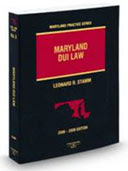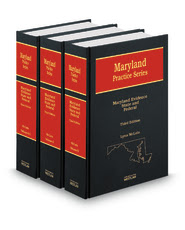On July 1, 2023, recreational marijuana became legal in Maryland. Adults over 21 years old are permitted to possess up to 1.5 ounces of marijuana and also to possess two pot plants. (Two plants is also the limit per household). With these changes it is important to remember that driving while impaired by marijuana is still a crime and a person who refuses a breathalyzer or after being examined by a so-called “drug recognition expert” refuses a blood test, can have his or her driver’s license suspended.
These drug recognition experts can be challenged on the ground that their testimony is insufficiently reliable to be considered by a court. As noted in an op-ed by Regi Taylor in the Baltimore Times on July 1,
Greenbelt-based attorney, Lenny Stamm, takes issue with the “scientific reliability” of methods used to identify suspected impaired drivers, particularly “assessments conducted by the state’s Drug Recognition Experts.” Stamm is an author and recognized national authority in his field, conducting seminars and lecturing widely on the DUI topic.
When an officer arrests an individual who appears to be impaired by something and an alcohol test discloses a negative or extremely low BAC, the officer may suspect the driver is under the influence of some drug, either medicine or controlled dangerous substance, or combination of drugs and alcohol. At that point the officer will frequently call for a specially trained officer called a Drug Recognition Expert (DRE). The Drug Evaluation and Classification Program (DEC) was initially developed by the Los Angeles Police Department in the late 1970’s to assist officers to predict which of seven categories of drugs are impairing an individual, and to provide reasonable grounds to request a blood test to confirm the presence of the drug in the person’s blood. The program is currently sponsored by the National Highway Traffic Safety Administration (NHTSA) and the International Association of Chiefs of Police (IACP). Officers receive extensive training to be able to administer the DEC twelve step protocol to suspects to predict the drugs used.
The categories of drugs considered are: (1) central nervous system (CNS) depressants; (2) CNS stimulants; (3) hallucinogens; (4) phencyclidine (PCP); (5) narcotic analgesics; (6) inhalants; and (7) cannabis. The twelve step examination consists of the following tests: (1) a breath alcohol test; (2) interview of the arresting officer; (3) preliminary examination and first pulse; (4) eye examination (horizontal gaze nystagmus (HGN), vertical gaze nystagmus (VGN), and lack of ocular convergence); (5) divided attention psychophysical tests (the Romberg balance, the walk-and-turn, the one-leg stand, and the finger to nose tests); (6) vital signs and second pulse (blood pressure, temperature and pulse); (7) dark room examinations (examining the subject’s pupil size under different lighting conditions to determine if they are dilated, constricted, or normal); (8) examination for muscle tone (firm or placid); (9) check for injection sites and third pulse; (10) subject’s statements and other observations (after reading Miranda warnings the subject is asked questions regarding drug use); (11) analysis and opinions of the evaluator (the evaluator applies the results obtained in the earlier tests and applies the drug symptomatology matrix); and, (12) toxicological examination (blood test).[1]
Officers receive training in two blocks, the initial two day (16 hour) “Pre-School,” and a seven day (56 hour) “Drug Recognition Expert School.”[2] At these training programs, the officers are taught how to administer the examinations called for in the DEC protocol, to properly record these observations, and to categorize the drug or drug combination that is believed to be causing the subject’s impairment. In addition to the learning the materials and passing the required tests, officers who become certified DREs are required to maintain a “rolling log” of all of their evaluations, and to renew their certifications every two years.
The Maryland Supreme Court has decreed in Rochkind v. Stevenson that scientific evidence must be sufficiently reliable to be considered by a court. It developed a non-exclusive list of ten issues a court should consider in making its decision: (1) whether a theory or technique can be (and has been) tested;(2) whether a theory or technique has been subjected to peer review and publication; (3) whether a particular scientific technique has a known or potential rate of error; (4) the existence and maintenance of standards and controls; and (5) whether a theory or technique is generally accepted. (6) whether experts are proposing to testify about matters growing naturally and directly out of research they have conducted independent of the litigation, or whether they have developed their opinions expressly for purposes of testifying; (7) whether the expert has unjustifiably extrapolated from an accepted premise to an unfounded conclusion; (8) whether the expert has adequately accounted for obvious alternative explanations; (9) whether the expert is being as careful as he [or she] would be in his [or her] regular professional work outside his [or her] paid litigation consulting; and (10) whether the field of expertise claimed by the expert is known to reach reliable results for the type of opinion the expert would give.
There will be many cases where the State is unable to convince a judge to allow DRE evidence after hearing from a competent defense lawyer or expert.
If you are charged with a DUI for alcohol or drugs, call Goldstein & Stamm, P.A., 301-345-0122, for a free consultation.
[1] National Highway Traffic and Safety Administration, U.S. Dep’t of Transportation, Preliminary Training For Drug Evaluation and Classification “The Pre-School” Student Manual (January 2007)(hereinafter “DRE Pre-School Student Manual”); National Highway Traffic and Safety Administration, U.S. Dep’t of Transportation, Drug Evaluation and Classification Training “The Drug Recognition Expert School” Student Manual (January 2007)(hereinafter “DRE Student Manual”).
[2] The DEC Standards Revision Subcommittee of the Technical Advisory Panel of the IACP Highway Safety Committee, The International Standards of the Drug Evaluation and Classification Program at 8 (Revised June 2, 1999)(hereinafter “DEC Standards”).
Goldstein & Stamm, P.A.
6301 Ivy Lane, Suite 504
Greenbelt, MD 20770
301-345-0122
(fax) 301-441-4652
www.dwiattorneymaryland.com
www.marylandduilawyer-blog.com

Author: post 2013 updates to Maryland Evidence: State and Federal by Professor Lynn McLain
“Patience, Perseverance, Persuasion”
 Maryland DUI Lawyer Blog
Maryland DUI Lawyer Blog


